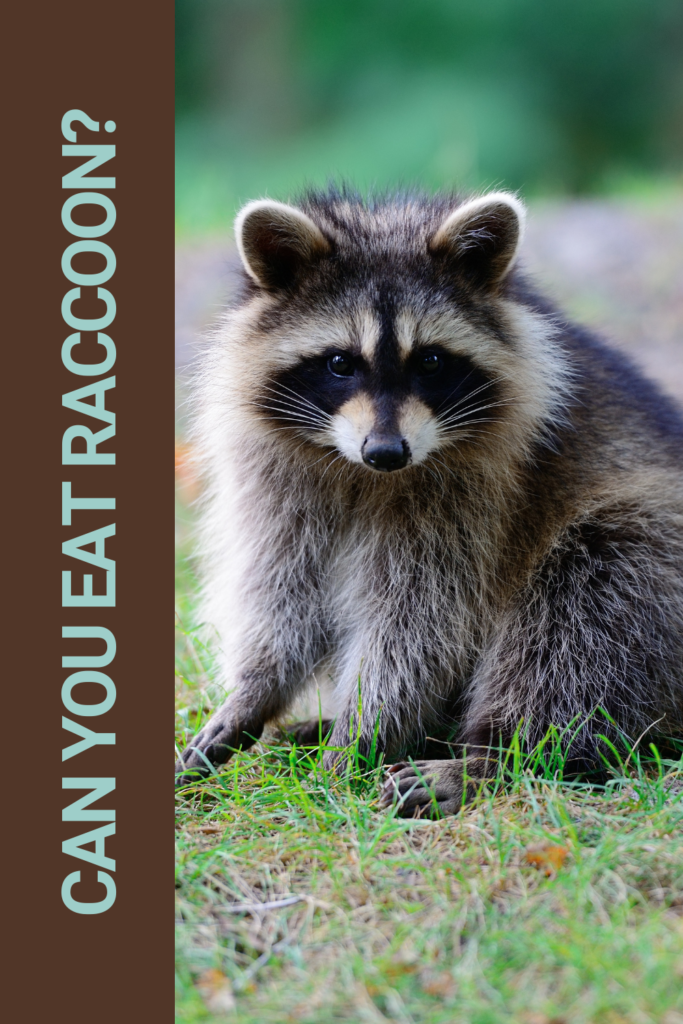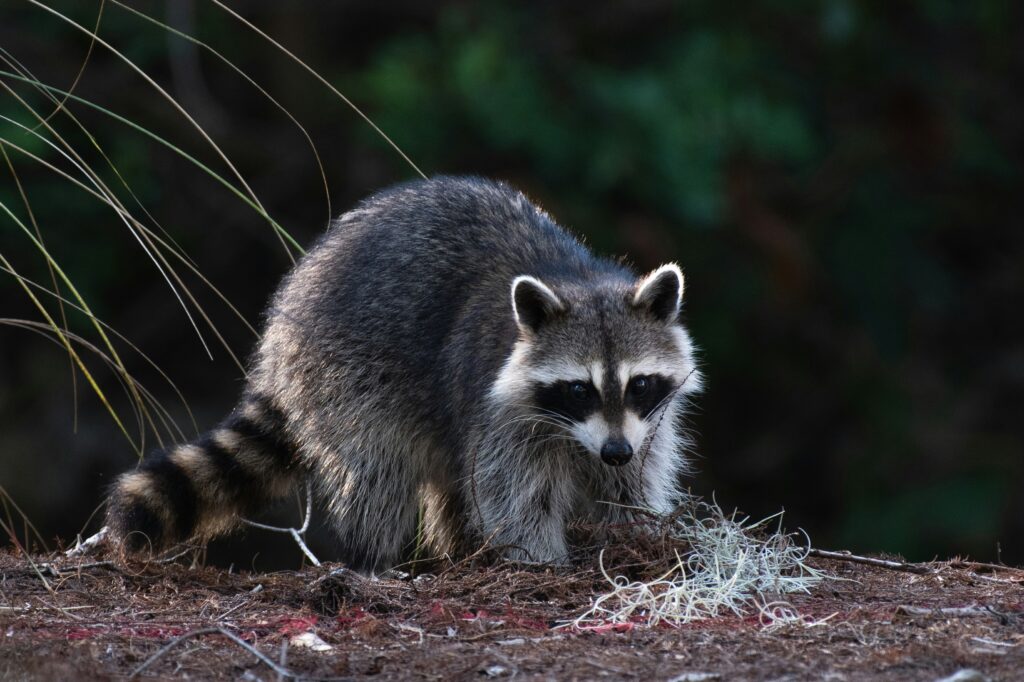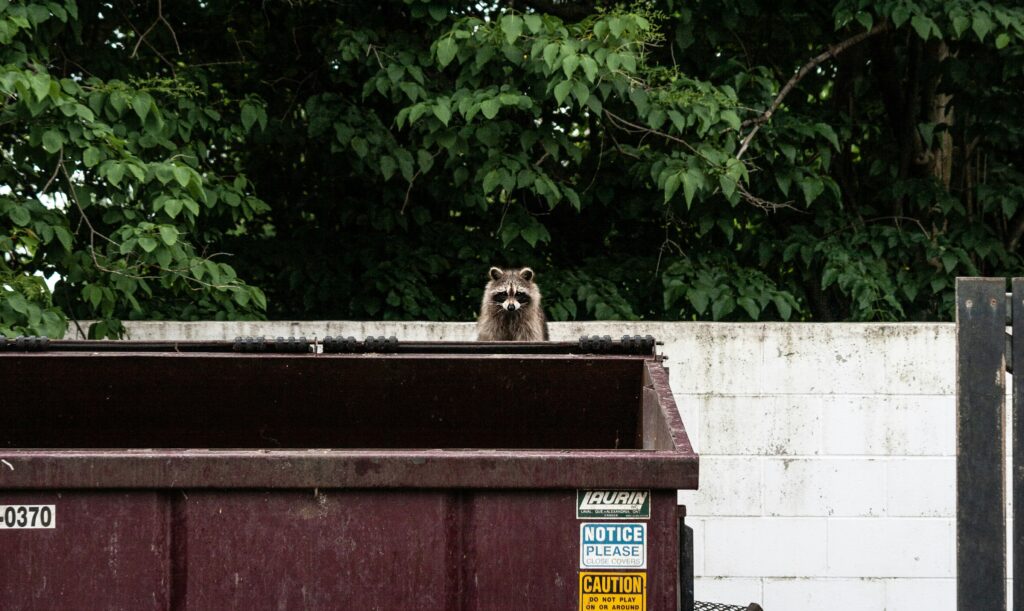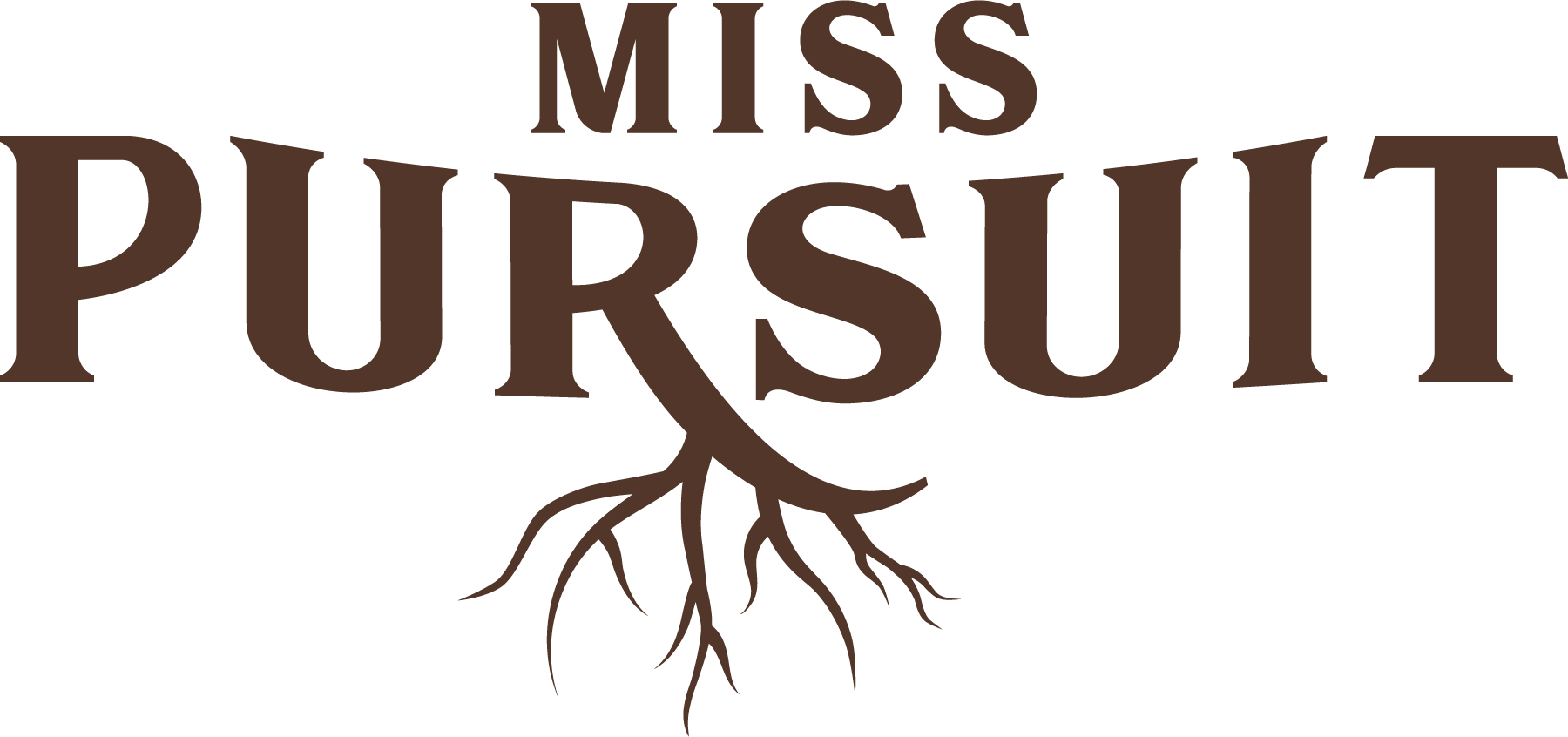Can you eat raccoon? This question may seem strange to some, but for others, it's a legitimate inquiry. Raccoon meat has been consumed by humans for centuries, and it's still a popular food source in some parts of the world. In this article, we'll explore the topic of eating raccoon, including its cultural significance, culinary insights, and health and safety considerations.

Understanding raccoons is essential to understanding the potential of eating them. Raccoons are omnivorous creatures that are known for their scavenging habits. They are also carriers of diseases such as rabies and roundworm, which can be transmitted to humans. Despite this, raccoon meat has been a part of traditional diets in many cultures, including Native American and Southern cuisine. In the next section, we'll delve deeper into the history and cultural significance of raccoon meat.
Key Takeaways
- Raccoon meat has been consumed by humans for centuries and is still a popular food source in some parts of the world.
- Raccoons are known for their scavenging habits and can carry diseases that can be transmitted to humans.
- Despite health and safety concerns, raccoon meat has cultural significance and has been a part of traditional diets in many cultures.
Understanding Raccoons
Raccoons are a common sight in many parts of North America, and are known for their distinctive black mask and ringed tail. They are omnivores, meaning they eat both plants and animals, and are well adapted to living in a variety of habitats. In this section, we will explore some of the key features of raccoons, including their habitat, diet, and behavior.
Raccoon Habitat and Diet
Raccoons are found throughout much of North America, from Canada down to Panama. They are adaptable creatures and can be found in a wide variety of habitats, including forests, wetlands, and even urban areas. In fact, raccoons have become increasingly common in urban areas, where they often raid trash cans in search of food.
In terms of diet, raccoons are opportunistic feeders and will eat just about anything they can get their paws on. Their diet includes a wide variety of foods, including fruits, nuts, insects, small animals, and even carrion. In urban areas, raccoons often rely on human food sources, such as garbage and pet food.
Raccoon Behavior and Interaction with Humans
Raccoons are nocturnal animals, meaning they are most active at night. During the day, they will often hide in dens or other sheltered areas. Raccoons are generally solitary animals, but they may form small groups during the breeding season.
While raccoons are generally not aggressive towards humans, they can become a nuisance in urban areas where they raid garbage cans and cause damage to property. In some cases, raccoons may also carry diseases that can be transmitted to humans, such as rabies.
Overall, raccoons are fascinating creatures that are well-adapted to living in a variety of habitats. By understanding their behavior and habitat, we can better coexist with these omnivorous predators and appreciate their unique place in the natural world.
Health and Safety Considerations

When it comes to eating raccoon meat, there are important health and safety considerations to keep in mind. In this section, we will discuss the risks of raccoon-borne diseases and the safe handling and preparation of game meat.
Risks of Raccoon-Borne Diseases
Raccoons are known carriers of several diseases, including rabies, trichinosis, and raccoon roundworm. Rabies is a viral disease that affects the central nervous system and can be transmitted to humans through the saliva of an infected animal. Trichinosis is a parasitic disease caused by the roundworm Trichinella spiralis, which can be contracted by eating undercooked meat from infected animals. Raccoon roundworm is a parasitic disease caused by the roundworm Baylisascaris procyonis, which can be contracted by ingesting the eggs of the parasite found in raccoon feces.
In order to minimize the risk of contracting these diseases, it is important to handle and prepare raccoon meat properly. This includes wearing gloves when handling the meat, cooking it thoroughly to an internal temperature of at least 160°F, and avoiding contact with raccoon feces.
Safe Handling and Preparation of Game Meat
When handling and preparing game meat, there are several important steps to follow to ensure that it is safe to eat. First, it is important to properly clean and sanitize all surfaces and utensils that come into contact with the meat. This can be done using hot, soapy water and a disinfectant solution.
Next, it is important to store the meat at the proper temperature to prevent the growth of harmful bacteria. Game meat should be stored in the refrigerator at a temperature of 40°F or below, or in the freezer at a temperature of 0°F or below.
When cooking game meat, it is important to use a meat thermometer to ensure that it is cooked to the proper temperature. For raccoon meat, this means cooking it to an internal temperature of at least 160°F.
By following these guidelines for safe handling and preparation, we can minimize the risk of contracting diseases from raccoon meat and other game meats.
Hunting and Trapping Raccoons
When it comes to hunting raccoons, there are a few things to consider. In this section, we will cover techniques and best practices.
Techniques and Best Practices
When it comes to hunting raccoons, there are a few techniques and best practices to keep in mind. One common method is to use a live trap. Live traps can be baited with food, and once the raccoon enters the trap, it can be released in a more suitable location.
Another technique is to use a hunting dog. Hunting dogs can help track down raccoons, making it easier to hunt them. However, it's important to make sure your dog is well-trained.
When hunting or trapping raccoons, it's important to use the right equipment. This includes a firearm or trap that is appropriate for the size of the raccoon. It's also important to wear appropriate clothing and gear, such as gloves and boots, to protect yourself from scratches and bites.
In conclusion, hunting and trapping raccoons can be a source of food for some people, but it's important to make sure you're doing it legally and ethically. Using the right techniques and equipment can also help ensure a safe and successful hunt.
Culinary Insights on Raccoon Meat
When it comes to game meats, raccoon is not the most popular choice. However, it is still consumed by some people in certain parts of the world. In this section, we will provide some culinary insights on raccoon meat, including how it compares to other game meats and how to prepare and cook it.
Comparing Raccoon to Other Game Meats
Raccoon meat is often compared to other game meats such as venison, rabbit, and wild boar. In terms of taste, raccoon meat has a slightly sweet and nutty flavor that is similar to pork. However, it can also have a slightly gamey taste, depending on the diet of the raccoon.
When it comes to texture, raccoon meat is lean and can be tough if not cooked properly. It is important to note that raccoons are scavengers, which means they can carry diseases such as rabies. Therefore, it is important to ensure that the meat is properly handled and cooked to avoid any health risks.
Preparing and Cooking Raccoon
Before cooking raccoon, it is important to remove any fat and glands, as they can give the meat a strong flavor. Raccoon meat can be prepared using a variety of cooking techniques, including roasting, braising, and smoking.
One popular recipe for raccoon meat is to marinate it in a mixture of vinegar, water, and salt for at least 24 hours before cooking. This helps to tenderize the meat and remove any gamey flavor. Another popular way to cook raccoon is to slow-cook it in a stew with vegetables and spices.
In terms of nutritional value, raccoon meat is high in protein and low in fat. It is also a good source of iron and vitamin B12. However, due to the potential health risks associated with raccoon meat, it is not recommended as a regular part of one's diet.
Overall, raccoon meat can be a tasty and unique addition to your culinary repertoire. However, it is important to handle and cook it properly to ensure that it is safe to eat.
Raccoon in Culture and Cuisine

Raccoons have been a part of American culture and cuisine for centuries. In fact, there are several towns in the United States that hold annual raccoon dinners, such as the Delafield Coon Feed in Wisconsin and the Gillett Coon Supper in Arkansas. These events celebrate the tradition of hunting and eating raccoons, which has been a part of American culture for generations.
Historical and Regional Raccoon Dishes
Historically, raccoon meat was often used as a source of protein in rural areas where other meats were scarce. Raccoon meat was also used in traditional Native American cuisine. In the Southern United States, raccoon meat was often prepared in stews or smoked and served with barbecue sauce. In the Midwest, it was often roasted or baked with vegetables.
Modern Culinary Interpretations
In recent years, raccoon cuisine has experienced a resurgence in popularity among chefs and food enthusiasts. Some chefs are experimenting with new ways to prepare raccoon meat, such as slow-cooking it in a sous-vide, while others are incorporating it into traditional dishes with a modern twist.
Our culinary journey has led us to discover that raccoon meat is lean and has a unique flavor that can be enhanced with the right seasoning and cooking methods. However, it is important to note that raccoon meat may carry diseases and parasites, so it should always be thoroughly cooked before consumption.
Overall, raccoon meat remains a controversial ingredient in American cuisine, with some embracing its cultural significance and others condemning it as unethical or unsanitary. As with any food, it is up to individual preference and cultural beliefs whether or not to include raccoon meat in their diet.
Frequently Asked Questions
How should one properly clean a raccoon before cooking?
Before cooking raccoon meat, it is important to properly clean the animal to ensure that any potential contaminants are removed. We recommend wearing gloves and using a sharp knife to remove the skin and fat from the meat. It is also important to remove any glands, as they can cause a strong, unpleasant flavor. Once the meat has been cleaned, it should be soaked in cold water for several hours to remove any remaining blood.
What are some recommended recipes for preparing raccoon meat?
Raccoon meat can be prepared in a variety of ways, including roasting, stewing, and grilling. One popular recipe is to slow-cook the meat in a savory broth with vegetables and herbs. Another option is to marinate the meat in a mixture of soy sauce, honey, and garlic before grilling or roasting. Regardless of the recipe, it is important to cook the meat thoroughly to ensure that any potential pathogens are eliminated.
What flavor profile can be expected when tasting raccoon?
Raccoon meat has a unique flavor that is often described as gamey and slightly sweet. The meat can be quite tender when cooked properly, and it pairs well with bold flavors like garlic and rosemary. Some people find that the meat has a slightly musky or earthy flavor, which can be tempered by marinating the meat in acidic ingredients like vinegar or lemon juice.
Are there any health concerns associated with eating raccoon meat?
While raccoon meat is generally safe to eat, there are some health concerns that should be considered. Raccoons can carry a variety of diseases, including rabies, so it is important to handle the meat with care and cook it thoroughly. Additionally, raccoons are known to scavenge for food in urban areas, which can increase the risk of contamination from pollutants and other toxins.
How does raccoon meat compare to other game meats in terms of gaminess?
Raccoon meat is generally considered to be more gamey than other types of game meat, such as venison or elk. However, the level of gaminess can vary depending on the age and diet of the animal, as well as the preparation method used. Some people find that soaking the meat in milk or buttermilk can help to reduce the gaminess.
What precautions should pet owners take if their dog consumes raccoon meat?
If a dog consumes raccoon meat, it is important to monitor them closely for any signs of illness, such as vomiting or diarrhea. Raccoon meat can contain parasites and bacteria that can be harmful to dogs, so it is important to seek veterinary care if any symptoms develop. Additionally, pet owners should take steps to prevent their dogs from coming into contact with raccoons, as they can transmit diseases to pets through bites and scratches.
